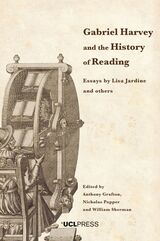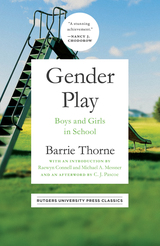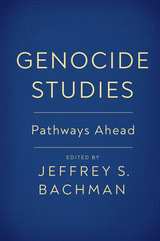
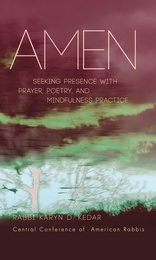
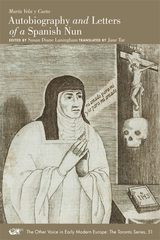
When María Vela y Cueto (1561–1617) declared that God had personally ordered her to take only the Eucharist as food and to restore primitive dress and public penance in her aristocratic convent, the entire religious community, according to her confessor, “rose up in wrath.” Yet, when Vela died, her peers joined with the populace to declare her a saint. In her autobiography and personal letters, Vela speaks candidly of the obstacles, perils, and rewards of re-negotiating piety in a convent where devotion to God was no longer expressed through rigorous asceticism. Vela’s experience, told in her own words, reveals her shrewd understanding of the persuasive power of a woman’s body.
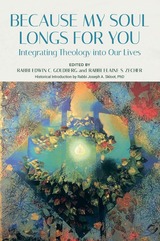

Beyond Compare is a remarkable work that offers a commentary on spiritual learning for the twenty-first century rooted in two classic texts from the Hindu and Christian traditions: the Essence of the Three Auspicious Mysteries by Śrī Vedānta Deśika and Treatise on the Love of God by St. Francis de Sales.
In his commentary, Clooney achieves multiple goals—the book is a contribution to Christian spiritual theology, highlighting for today the beautiful insights into love by St. Francis de Sales (1567-1623), Doctor of the Church. At the same time it points out how even in our world of many religious paths, we can recover and deepen the ancient tradition of loving surrender into God's hands by opening ourselves to the wisdom of India and one of Hindu India's most famous traditions of loving God, explained to us by the south Indian Hindu theologian Śrī Vedānta Deśika (1268-1369). Clooney goes further, offering a comparative study of these classic works in which he self-consciously writes about the process of reading the two works and the impact this approach has on the reader. The good advice found through this deep engagement with these texts offers a deeper insight into how we can most fruitfully and spiritually think about religious pluralism in the 21st century, remaining open in heart and mind while loyal still to our own tradition.
Not merely a book about loving surrender to God, Beyond Compare offers us the opportunity to advance along that path ourselves, learning from the wisdom of St. Francis de Sales and Śrī Vedānta Deśika, meditating on their two paths together, deepening our own love and willingness to surrender in love to God.
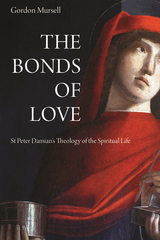
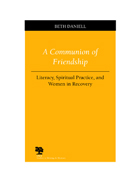
Drawing on interviews and an array of scholarly work, Beth Daniell maps out the relations of literacy and spirituality in A Communion of Friendship: Literacy, Spiritual Practice, and Women in Recovery. Daniell tells the story of a group of women in “Mountain City” who use reading and writing in their search for spiritual growth. Diverse in socioeconomic status, the Mountain City women are, or have been, married to alcoholics. In Al-Anon, they use literacy to practice the Twelve Steps of Alcoholics Anonymous in order to find spiritual solutions to their problems.
In addition, Daniell demonstrates that in the lives of these women, reading, writing, and speaking are intertwined, embedded in one another in rich and complex ways. For the women, private literate practice is of the utmost importance because it aids the development and empowerment of the self. These women engage in literate practices in order to grow spiritually and emotionally, to live more self-aware lives, to attain personal power, to find or make meaning for themselves, and to create community. By looking at the changes in the women’s reading, Daniell shows that Al-Anon doctrine, particularly its oral instruction, serves as an interpretive tool. This discussion points out the subtle but profound transformations in these women’s lives in order to call for an inclusive notion of politics.
Foregrounding the women’s voices, A Communion of Friendship addresses a number of issues important in composition studies and reading instruction. This study examines the meaning of literacy within one specific community, with implications both for pedagogy and for empirical research in composition inside and outside the academy.
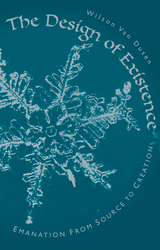
In The Design of Existence, Wilson Van Dusen offers spiritual explorers a guidebook for mystical experience, describing the inner landscape in detail. Though considering himself a scientist, Van Dusen approaches reality as a mystic, using the writings of 18th-century visionary Emanuel Swedenborg as a lens. For Swedenborg and Van Dusen, our interior realm reflects the external cosmos, which makes a mystical sense of oneness possible: "We are in a massive order, far greater than we can see. Yet we are not alien to this order. We are created out of it."
For Van Dusen's mysticism, Swedenborg is the exemplar of universality. A scientist who mastered fields as varied as chemistry, physiology, optics, and metallurgy, Swedenborg turned inward to investigate the psychological and the spiritual. He affirmed the value of other religious cultures and even wrote in gender-inclusive Latin. He had startlingly contemporary insights: he saw that the spiritual must inform everyday experience, that feelings must aid the intellect in seeking the spiritual, that the quest for the soul leads to understanding the cosmos and vice versa.
Van Dusen uses Swedenborg's ideas as the basis for a true universal mysticism. In The Design of Existence, he invites each of us to confront mystical experience as proof that we and the cosmos share a spiritual design, which orders our lives as surely as it orders the universe itself.
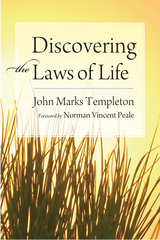
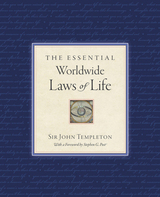
What does it mean to live a good life?
The major scriptures of the world, various schools of philosophical thought, storytellers, scientists, artists, and historians have all offered answers to this question. Surprisingly, these answers are common among nearly all sources. Famed investor and philanthropist Sir John Templeton called these commonalities the “laws of life.”
Templeton gathers the best of these teachings in The Essential Worldwide Laws of Life. This handsome volume shows readers of all ages, from all parts of the world, how to make their lives more joyous and useful by learning the universal truths that transcend time and culture.
Each law is presented in an essay format, with stories, commentary, and quotations to illustrate its importance. The material is designed to inspire the reader to put these laws into practice and to enjoy the rewarding life that will result.
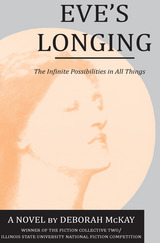
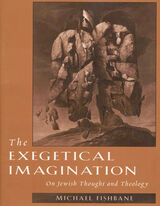
Exegesis--interpretation and explanation of sacred texts--is the quintessence of rabbinic thought. Through such means and methods, the written words of Hebrew Scripture have been extended since antiquity, and given new voices for new times. In this lucid and often poetic book, Michael Fishbane delineates the connections between biblical interpretation and Jewish religious thought.
How can a canon be open to new meanings, given that it is believed to be immutable? Fishbane discusses the nature and rationale of this interpretative process in a series of studies on ancient Jewish speculative theology. Focusing on questions often pondered in Midrash, he shows how religious ideas are generated or justified by exegesis. He also explores the role exegesis plays in liturgy and ritual. A striking example is the transfer of speculative interpretations into meditation in prayer. Cultivation of the ability to perceive many implicit meanings in a text or religious practice can become a way of living--as Fishbane shows in explaining how such notions as joy or spiritual meditations on death can be idealized and the ideal transmitted through theological interpretation. The Exegetical Imagination is a collection of interrelated essays that together offer new and profound understanding of scriptural interpretation and its central role in Judaism.
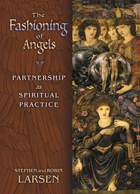
Stephen and Robin Larsen, authors of A Fire in the Mind, the authorized biography of their friend Joseph Campbell, explore man-woman relationships, questing for the answer to the timeless question, "What do couples really want?"
The Larsens look to ancient wisdom -- the realm of mythology -- to solve the relationship riddle. Storytelling artists, they underline the powerful messages in the myths, folktales, and fairytales described in the book, stories that help heal wounds of gender wars. Experiential exercises the Larsens have developed deepen couples' spiritual bonds.
Readers "eavesdrop" on issues in the Larsens' own marriage; their dialogs about their own relating process bring passion and intimacy to the book.
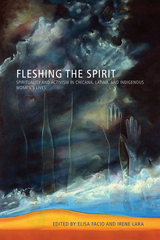
The anthology incorporates different genres of writing—such as poetry, testimonials, critical essays, and historical analysis—and stimulates the reader to engage spirituality in a critical, personal, and creative way. This interdisciplinary work is the first that attempts to theorize the radical interconnection between women of color, spirituality, and social activism. Before transformative political work can be done, the authors say in multiple ways, we must recognize that our spiritual need is a desire to more fully understand our relations with others. Conflict experienced on many levels sometimes severs those relations, separating us from others along racial, class, gender, sexual, national, or other socially constructed lines.
Fleshing the Spirit offers a spiritual journey of healing, health, and human revolution. The book’s open invitation to engage in critical dialogue and social activism—with the spirit and spirituality at the forefront—illuminates the way to social change and the ability to live in harmony with life’s universal energies.
Contributors
Volume Editors
Elisa Facio
Irene Lara
Chapter Authors
Angelita Borbón
Norma E. Cantú
Berenice Dimas
C. Alejandra Elenes
Alicia Enciso Litschi
Oliva M. Espín
Maria Figueroa
Patrisia Gonzales
Inés Hernández- Avila
Rosa María Hernández Juárez
Cinthya Martinez
Lara Medina
Felicia Montes
Sarahi Nuñez- Mejia
Laura E. Pérez
Brenda Sendejo
Inés Talamantez
Michelle Téllez
Beatriz Villegas

The traditional markers of growing up are getting married and becoming financially independent. But young adults are delaying these milestones, sometimes for a full decade longer than their parents and grandparents. This new phase of “emerging adulthood” is diminishing the involvement of young people in religious institutions, sapping the strength and vitality of faith communities, and creating a more barren religious landscape for the young adults who do eventually decide to return to it. Yet, clearly there are some churches, synagogues, and mosques that are making strides in bringing young people back to religion.
Got Religion? offers in-depth, on-the-ground reporting about the most successful of these institutions and shows how many of the structural solutions for one religious group can be adapted to work for another.
The faith communities young people attach themselves to are not necessarily the biggest or the most flashy. They are not the wealthiest or the ones employing the latest technology. Rather, they are the ones that create stability for young people, that give them real responsibility in a community and that help them form the habits of believers that will last a lifetime.
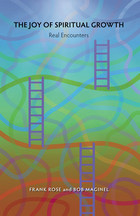
Frank Rose and Bob Maginel provide people seeking spiritual growth and recovery a practical handbook for accomplishing their goals. Recognizing that spiritual growth can be stymied by materialism and external preoccupations, the authors offer tasks and exercises that can be used repeatedly to help tame the "wild beasts," the negative emotions that can control our lives and destroy our relationships with others.
A special feature of the book is the "Reporting on the Task" section at the end of each of the twelve tasks, in which participants who were enrolled in a real-life twelve-week seminar share their struggles in their own words. Their successes and setbacks in applying the tasks to daily life underscore the ongoing nature of the recovery process and remind us that the joy of spiritual growth is linked to enjoying the journey.
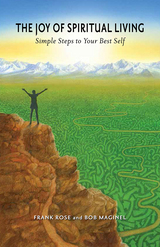
Through a series of eight exercises, readers learn how to raise their awareness and their spirits to a higher level, to connect more readily with their Higher Power, and to unlock authentic spiritual joy even at life’s most challenging moments. For people working in groups, the authors include suggestions for structuring spiritual growth meetings and tools for discussion facilitators. For individuals using the book alone, Rose and Maginel provide transcripts of their own group’s discussions, challenges, and “Aha!” moments, so the reader can share in the group experience.
Building on their previous book, The Joy of Spiritual Growth, Rose and Maginel offer more of the gentle wisdom and practical techniques that have made their spiritual growth program an enduring success.
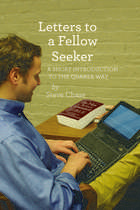
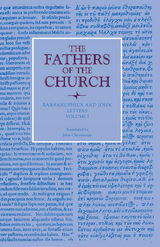
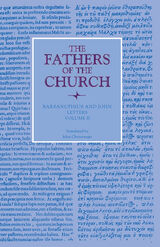

“Mysticism is peculiar to the mountainbred,” Frank Waters once told an interviewer for Psychology Today. And in Mountain Dialogues, available for the first time in paperback, the mountainbred Waters proves it true. Ranging over such diverse subjects as silence, spirits, time, change, and the sacred mountains of the world, Waters sounds again and again the radiant, mystic theme of man’s inherent wholeness and his oneness with the cosmos.
Writing in Western American Literature, Charles L. Adams said, “In Mountain Dialogues, we see Frank Waters acknowledging his sources—major influences on a great American thinker and writer. Waters weaves together threads of these influences, adds his own thought, and presents us with a truly cosmic overview. This overview is thoroughly that of an American ‘Westerner’; it also is one that merits international consideration.”
And as the Bloomsbury Review wrote: “Mountain Dialogues is more than just a collection of personal essays. It is an ‘evolutionist’s handbook’ for the sons and daughters of the new West, a guide for those who would transcend the limitations of Western civilization.”
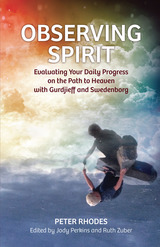
Based on the teachings of G.I. Gurdjieff, P.D. Ouspensky, Maurice Nicoll, and Emanuel Swedenborg, Peter Rhodes presents a practical guide to spiritual progress. Stressing personal responsibility for overcoming negative traits, each chapter explains how we can realize our true spiritual potential by cultivating awareness of our baser reactions and by applying the tools of Gurdjieff's spiritual method, "The Work," to our everyday existence.
Rhodes joins "The Work" with the spiritual philosophy of Emanuel Swedenborg to enhance our understanding of how the world of spirit intersects our lives on the earthly level. At the conclusion of each chapter, tools for measuring the reader's progress are provided in the form of weekly tasks and meditations. This book can be used in group workshops or by the individual.
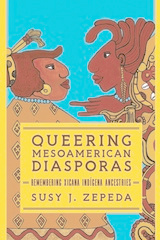
A fascinating exploration of hidden Indígena histories and silences, Queering Mesoamerican Diasporas blends scholarship with spirit practices to reimagine the root work, dis/connection to land, and the political decolonization of Xicana/x peoples.
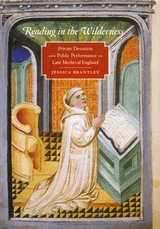
Drawing on the work of W. J. T. Mitchell, Michael Camille, and others working at the image-text crossroads, Reading in the Wilderness addresses the manuscript’s texts and illustrations to examine connections between reading and performance within the solitary monk’s cell and also outside. Brantley reimagines the medieval codex as a site where the meanings of images and words are performed, both publicly and privately, in the act of reading.
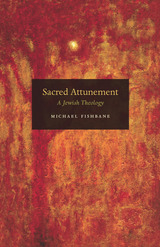
The first part of the book regrounds theology in this setting and opens up new pathways through nature, art, and the theological dimension as a whole. In the second section, Fishbane introduces his hermeneutical theology—one grounded in the interpretation of scripture as a distinctly Jewish practice. The third section focuses on modes of self-cultivation for awakening and sustaining a covenant theology. The final section takes up questions of scripture, authority, belief, despair, and obligation as theological topics in their own right.
The first full-scale Jewish theology in America since Abraham J. Heschel’s God in Search of Man and the first comprehensive Jewish philosophical theology since Franz Rosenzweig’s Star of Redemption, Sacred Attunement is a work of uncommon personal integrity and originality from one of the most distinguished scholars of Judaica in our time.
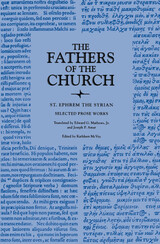
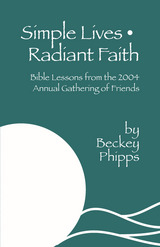
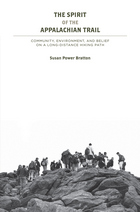
“Want to know what wilderness means to people who live it for over two thousand miles? Then read this extremely interesting, informative, intelligent, and thoughtful book.” —Roger S. Gottlieb, author of Engaging Voices: Tales of Morality and Meaning in an Age of Global Warming
“There is no doubt that Bratton’s book will be of value to students and scholars of leisure studies, recreation, and religion. Those who are familiar with the Appalachian Trail sense intuitively that a journey along its length kindles spiritual awakening; this book provides the hard data to prove it’s true.” —David Brill, author of As Far as the Eye Can See: Reflections of an Appalachian Trail Hiker
The Appalachian Trail covers 2,180 miles, passing through fourteen states from Georgia to Maine. Each year, an estimated 2–3 million people visit the trail, and almost two thousand attempt a “thru-hike,” walking the entire distance of the path. For many, the journey transcends a mere walk in the woods and becomes a modern-day pilgrimage.
In The Spirit of the Appalachian Trail: Community, Environment, and Belief, Susan Power Bratton addresses the spiritual dimensions of hiking the Appalachian Trail (AT). Hikers often comment on how their experience as thru-hikers changes them spiritually forever, but this is the first study to evaluate these religious or quasireligious claims critically. Rather than ask if wilderness and outdoor recreation have benefits for the soul, this volume investigates specifically how long-distance walking might enhance both body and mind.
Most who are familiar with the AT sense intuitively that a trek along its length kindles spiritual awakening. Using both a quantitative and qualitative approach, this book provides the hard data to support this notion. Bratton bases her work on five sources: an exhaustive survey of long-distance AT hikers, published trail diaries and memoirs, hikers? own logs and postings, her own personal observations from many years on the trail, and conversations with numerous members of the AT community, including the “trail angels,” residents of small towns along the path who attend to hikers? need for food, shelter, or medical attention.
The abundant photographs reinforce the text and enable visualization of the cultural and natural context. This volume is fully indexed with extensive reference and notes sections and detailed appendixes. Written in an engaging and accessible style, The Spirit of the Appalachian Trail presents a full picture of the spirituality of the AT.
Susan Power Bratton is professor of environmental studies. She is the author of Six Billion and More: Human Population Regulation and Christian Ethics, Environmental Values in Christian Art, and Christianity, Wilderness, and Wildlife: The Original Desert Solitaire.
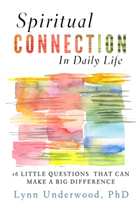
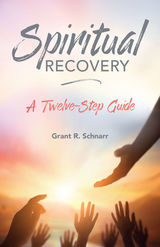
Twelve-step programs, which are based on psychological and spiritual growth, serve all who desire a path to freedom from destructive tendencies and consequent suffering. Using a twelve-step approach, Grant Schnarr presents readers with the tools needed to live a life guided by a greater awareness of both others and self. Filled with practical advice for incorporating these twelve principles into one’s life, Spiritual Recovery provides a road map for developing a deeper relationship with God and experiencing greater joy.
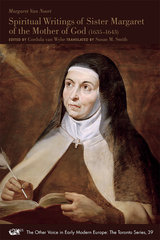
In 1635, as directed by her confessor so that he might understand “the state of her soul,” Margaret Van Noort, a lay sister of the royal convent of Discalced Carmelite nuns in Brussels, composed her spiritual autobiography. This text was followed by two diaries in 1636 and 1637 recording the workings of her inner life and relation to God, and reflecting the cosmopolitan Catholic tradition of her homeland. Now gathered in this volume, these works illustrate Margaret’s development from a troubled young lay sister into a woman of spiritual experience and authority.
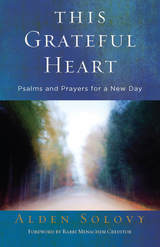
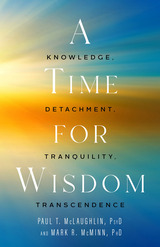
These are volatile times. Fear, suspicion, and cynicism are chronic. A mere tweet inflames the passions of millions while click-bait “hot takes” stoke the amygdalas of everyone with an Internet connection. We treat those not in our tribe as a threat and deem anyone with a different opinion as evil. Mistaking myopia for measure, we lack all sense of proportion in our judgments. We are shortsighted, mired in the present, ignorant of history, and blind to the future. We thought that technology would save us by connecting us to each other and the world’s information. Instead, it enticed our vices, encouraged our biases, and eroded the one virtue we need now more than ever: wisdom.
A Time for Wisdom is for readers who feel beleaguered by the incivility of the modern world, dispirited by its coarse rhetoric and toxic partisanship. It is an invitation to escape the shallow cacophony and restore peace and perspective to our daily lives. Written by two psychologists, the book takes the best scientific research on wisdom and integrates it with timeless concepts that have, for ages, guided troubled souls through life’s hardships. From this foundation, the authors present four steps we can follow to practice wisdom in the 21st Century:
- Receiving knowledge.
- Practicing detachment.
- Experiencing tranquility.
- Cultivating transcendence.
These are profound and spiritual principles that can bring us immense satisfaction when we aspire to live by them.
In A Time for Wisdom, the authors show us how. They commend a course of action towards the Good, the True, and the Beautiful, towards calm and clear moral reasoning. They lead us out of the circus of contemporary life and show us a path beyond our petty self-centeredness. By journeying along that path, we can, like the great sages and scientists before us, rise above the immediacy of the moment and partake of the numinous and the infinite.

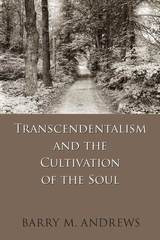
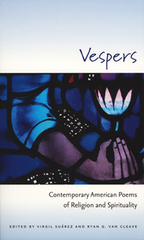
At the heart of human existence lie fundamental questions that are pondered by philosophers, theologians, poets and thoughtful people from all walks of life. What is the meaning of life? Who or what is a divine being? How can a benevolent deity justify human suffering? Such questions are especially relevant to our lives in the current climate of American society. In Vespers: American Poems of Religion and Spirituality, editors Virgil Suárez and Ryan G. Van Cleave offer the reading world a timely anthology of powerful and passionate poems that cut to the heart of our contemporary theological and spiritual underpinnings.
Featuring fifty of today's most respected American poets, including Pulitzer Prize winners Stephen Dunn and Carolyn Kizer, Vespers allows us to witness and understand the challenging ideas and philosophies surrounding religion and spirituality. Through these poems, we can come to a better understanding of who, what, and why we are.
From deathbed spirituals to initiation songs, transformative ballads to transcendent sonnets, poets of myriad backgrounds—Native American, African American, Asian American, Latino, Protestant, Buddhist, Catholic, Jewish—echo the thoughts, concerns, and fears that linger in our souls. Their poems help us realize that we are not alone, that we're never truly alone, that even in the face of darkness the world is vibrant, beautiful, joyous.
More than a creative exploration of theological concerns—Vespers is a roadmap of where we've been, where we are, and where we are heading in terms of our spiritual and religious existence. It will keep you company, good company, whatever your religious or spiritual background.
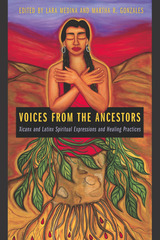
This wisdom is based on the authors’ oral traditions, research, intuitions, and lived experiences—wisdom inspired by, and created from, personal trajectories on the path to spiritual conocimiento, or inner spiritual inquiry. This conocimiento has reemerged over the last fifty years as efforts to decolonize lives, minds, spirits, and bodies have advanced. Yet this knowledge goes back many generations to the time when the ancestors understood their interconnectedness with each other, with nature, and with the sacred cosmic forces—a time when the human body was a microcosm of the universe.
Reclaiming and reconstructing spirituality based on non-Western epistemologies is central to the process of decolonization, particularly in these fraught times. The wisdom offered here appears in a variety of forms—in reflective essays, poetry, prayers, specific guidelines for healing practices, communal rituals, and visual art, all meant to address life transitions and how to live holistically and with a spiritual consciousness for the challenges of the twenty-first century.
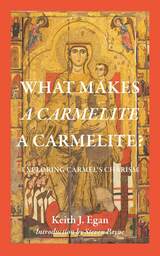
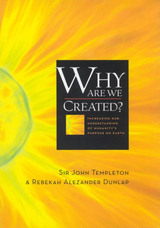
While many books strive to stimulate thinking through provocative anecdotes and theories, Why Are We Created? takes a different path. It begins with a question and continues with a multitude of questions like these:
•What is the importance of recognizing the presence of the sacred within us and around us?•How can individuals create a purposeful and fruitful way of life?
•How does happiness relate to one's purpose?
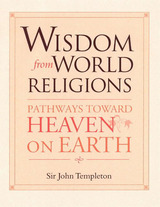
Every religion acknowledges certain spiritual principles and records them in its sacred literature and traditions. This book curates these ancient teachings and shows how they apply to modern life with the help of parables, quotations, and commentaries.
By reading Wisdom from World Religions, people from all walks of life will be inspired to pursue their own spiritual growth and to contemplate questions central to our existence, such as how, through love and creativity, can we be agents of divinity on earth?
Uplifting and instructional, this is a book to be treasured, studied, and practiced.

Aelred (1110–1167), abbot of Rievaulx Abbey in Yorkshire, has always been a controversial figure. He was beloved by his monks and widely admired, but also sharply criticized for his frankness about his own sinfulness and what some considered his favoritism and excessive leniency.
Writings on Body and Soul includes a selection of the prolific abbot’s theological, historical, and devotional works. Each contains autobiographical elements, showing Aelred at turns confident and fearful, tormented and serene. In A Pastoral Prayer, he asserts his unworthiness and pleads for divine aid in leading his monks wisely and compassionately. Spiritual Friendship adapts Cicero’s dialogue on friendship for Christian purposes. A Certain Marvelous Miracle offers a riveting account of a pregnant teenage nun, the bloody vengeance wreaked on her seducer, and the miracle of her release from her fetters. Finally, Teachings for Recluses, addressed to Aelred’s sister, is a guide for women pursuing solitary religious perfection.
Freshly revised editions of the Latin texts appear here alongside new English translations.
READERS
Browse our collection.
PUBLISHERS
See BiblioVault's publisher services.
STUDENT SERVICES
Files for college accessibility offices.
UChicago Accessibility Resources
home | accessibility | search | about | contact us
BiblioVault ® 2001 - 2024
The University of Chicago Press



